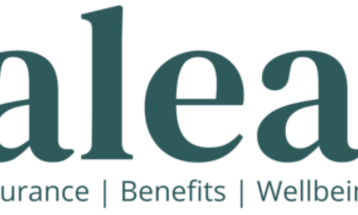Analyses & Studies • Sectors & markets • Foresight • Publications
AD MediLink: Exclusive interview on COVID-19 with SARS expert Dr Sarah Borwein
AD MediLink is proud to bring you an exclusive interview with SARS Expert, Dr Sarah Borwein, to share unique insights on the novel coronavirus (COVID-19).
We couldn’t think of a better person than Dr Sarah Borwein. Originally from Canada, Dr Borwein has been practicing in Hong Kong for over 15 years, and prior to that successfully ran the Infection Control program for the only expatriate hospital in Beijing during the SARS period, also serving as liaison with the World Health Organisation (WHO) there. Dr Borwein is also a mother of three, and has been helping families in situations including epidemics in Asia since 2001.
What would you say are the main differences between COVID-19 and SARS?
COVID-19 and SARS do share some common features: they belong to the same family of viruses, they both seem to have jumped from animals to humans, they both originated in China and both can cause severe pneumonia.
But there are some important differences. SARS was more lethal than COVID-19, but less easily transmitted. It went straight for the lungs, and caused severe pneumonia which became transmissible only when patients were quite severely ill and usually by then in hospital. About 10% died.
COVID-19, on the other hand, seems to be more likely to replicate in the upper respiratory tract and it seems like individuals might produce a lot of virus when they are only mildly symptomatic. It’s not known how many people with COVID-19 develop pneumonia, but of the ones who do, about 20% get severely ill and fewer than 2% die. Overall death rates are still not known for sure, but are probably less than 1%.
So COVID-19 is a lot less lethal than SARS, but harder to control because it spreads more easily and by people with milder symptoms. That’s why, despite being considerably less likely to kill you than SARS was, COVID-19 has still in total killed more people in 6 weeks than SARS did in eight months.
Another important difference is that medical science has advanced considerably in the 17 years since SARS. In 2003, it took months to identify the virus and develop a test. For COVID-19 that happened within a couple of weeks. That has made identifying patients a great deal easier. In addition, there are newer treatments and some vaccine prospects already in the works.
Which lessons can be learnt from SARS to best manage the current outbreak?
The most important thing we learned from SARS was that infectious diseases do not respect borders or government edicts, and cannot be hidden. It requires international cooperation, transparency and sharing of information to control an epidemic.
We also learned the importance of providing good, balanced, reliable information to the public. In any epidemic, there is the outbreak of disease and then there is the epidemic of panic. And nowadays, there is also what the WHO has termed the Infodemic, the explosion of information about the epidemic. Some of it is good information, but some of it is rumour, myth, speculation and conspiracy theory, and those things feed the anxiety. It can be hard to sort out which information to believe, so it is important to choose trustworthy sources. Panic and misinformation make controlling the outbreak more difficult.
Finally, SARS was the first time we realised that acute respiratory illnesses (other than TB) could be spread to healthcare workers. When the SARS epidemic started in 2003, the hospital I worked at had two N95 masks, in case of the occasional case of active tuberculosis. Many people had never even heard of an N95 mask! Now we do recognise that healthcare workers, the very people we depend on to help us if we get sick, are particularly vulnerable. Although this risk appears to have been considerably worse for SARS than it is for COVID-19, it does appear that there is an elevated risk to our frontline care-givers in hospitals, and special care has to be taken to protect them.



